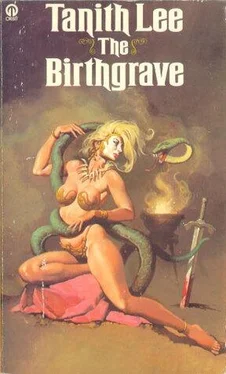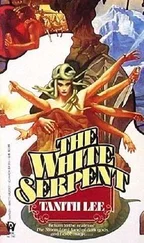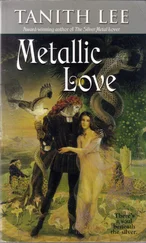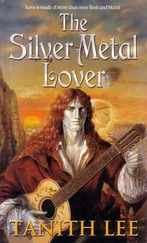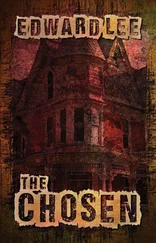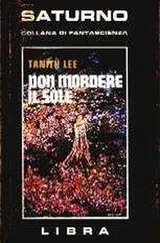Tanith Lee - The Birthgrave
Здесь есть возможность читать онлайн «Tanith Lee - The Birthgrave» весь текст электронной книги совершенно бесплатно (целиком полную версию без сокращений). В некоторых случаях можно слушать аудио, скачать через торрент в формате fb2 и присутствует краткое содержание. Год выпуска: 1977, ISBN: 1977, Издательство: Orbit, Жанр: Фэнтези, на английском языке. Описание произведения, (предисловие) а так же отзывы посетителей доступны на портале библиотеки ЛибКат.
- Название:The Birthgrave
- Автор:
- Издательство:Orbit
- Жанр:
- Год:1977
- ISBN:0-86007-942-2
- Рейтинг книги:3 / 5. Голосов: 1
-
Избранное:Добавить в избранное
- Отзывы:
-
Ваша оценка:
- 60
- 1
- 2
- 3
- 4
- 5
The Birthgrave: краткое содержание, описание и аннотация
Предлагаем к чтению аннотацию, описание, краткое содержание или предисловие (зависит от того, что написал сам автор книги «The Birthgrave»). Если вы не нашли необходимую информацию о книге — напишите в комментариях, мы постараемся отыскать её.
The Birthgrave — читать онлайн бесплатно полную книгу (весь текст) целиком
Ниже представлен текст книги, разбитый по страницам. Система сохранения места последней прочитанной страницы, позволяет с удобством читать онлайн бесплатно книгу «The Birthgrave», без необходимости каждый раз заново искать на чём Вы остановились. Поставьте закладку, и сможете в любой момент перейти на страницу, на которой закончили чтение.
Интервал:
Закладка:
One by one they fell into the sleep of suffocation, and one by one, as they lay in their rooms like pale embalmed dolls with stopped clockwork hearts, the Plague came and melted them into wax.
I wandered the silent temple slowly, panting, and sobbing when I had enough breath for it. I watched them die. There are no words for the emotions in me as I lingered, waiting to follow them to their disgusting end.
There was a princess, and she remained whole longer than the rest. She lay in her trance, her white hair spread around her, her straight white limbs bright under the thin robe. Between her breasts glistened a drop of diamond—the gift of some long-dead lover—which she had not taken off even in her agonies of repentance. Each day I would drag myself to her cell, and sit by her on the floor, holding her limp hand as if this were a protection and a comfort.
One day I came and the white lamp of her skin was spilled into a reeking stain on the couch.
I went back to my little cell. I curled myself together. For the last time I cried myself to sleep.
5
To wake, and not to know where or who you are, not even to know what you are—whether a thing with legs and arms, or a beast, or a brain in the hull of a great fish—that is a strange awakening. But after a while there was a new darkness, full of a pattern of light. I was afraid. I struggled to release myself from the bands which seemed to hold me, tried to cry out, and even my body and my voice were new to me.
Then came an avalanche of color, sound, movement, cascading across my mind, drenching it and leaving it bruised. The rest of my life had passed swiftly, as if someone had flicked over the pages of a huge book, too fast. Yet I could remember now that this was not that first awakening under the mountain, that first awakening as a woman, who had fallen asleep as a four-year-old child.
Around me the throb of hidden engines in the silver star ship.
Hands drew a metal circlet from my head, and metal bracelets from my wrists. I rose from the metal chair, and I was free.
I looked at Ciorden, where he still sat, slowly drawing the metal bands from himself. His face was clenched and pale. He glanced at me and smiled a little.
“A tiring journey,” he said, “for both of us.”
I nodded. I was quiet and empty. Feeling the stir of understanding, I seemed to have no need to scrabble toward it. It would come.
A doorway slid open in the far wall; beyond lay a small, dimly lit room. Rarm’s tall figure intercepted the light. He beckoned to me, and I went into the room without trepidation. He followed me, and the doors softly shut.
There was a silence between us. Finally I said: “Strange to recall the experience of birth. The first struggle which we all forget.”
“Your birth,” he said, “is unimportant. Have you unearthed your own secret?”
“Yes, I believe so.”
“Then tell me,” he said.
“It seems laughable,” I said, still not wanting to say the thing aloud.
“As important as finding it is the need for you to admit it,” he said. “Now tell me, as you see it, what has happened to you.”
I sat on a couch which came to me from the wall. I looked at my own hands, calm, white, slightly open in my lap.
“Darak, Vazkor, and you, Rarm Zavid, I can see that much,” I said softly. “You bear only a superficial resemblance to each other; there is none of the great likeness I have imagined linked each of you to the last. I see also whose likeness began my obsession with the tall dark narrow-eyed man—Sekish, whose face came in my first dreams after I had left the mountain. Sekish, who terrified and degraded me, who made me aware of my evil and unworthiness to live. I see, too, why I blocked my thoughts against the four years of my past, and particularly against the last halfyear of death and misery. Except that I remembered, Rarm, far too well—without remembering.”
“You were strong,” he said. “By some miracle you escaped the Plague, and grew into a woman as you lay in the airless cell for sixteen years. The airless cell. Unbreathing, you could only lie in a coma. Do you know now what woke you?”
“I think—I am not sure.”
“In the last days of the Plague,” he said, “the volcano roused itself; rock fell and blocked the air funnels.
For the sixteen years of your coma the volcano grumbled and trembled, preparing itself for an eruption.
On the last day, the walls of the mountain cracked open under the pressure of built-up gases inside.
Through the cracks, a little new air filtered in to you. You began to breathe. After a time, in the last hours before the eruption, you woke.”
“And so,” I said, “and so my waking did not create the eruption as part of the curse and punishment I must suffer for going out of the mountain. It was the eruption which caused my waking.”
“Your curse and punishment,” he repeated. “Yet you understand now, don’t you, who cursed you. and who punished you? You understand finally the nature of Karrakaz?”
“Karrakaz was my invention. I invested the offering bowls of the Lost with the Power of my self-terror.
There has never been an Evil One, a Soulless One, created from the wickedness of my people, returning to destroy them. I feared my Power, because Sekish had made me fear it, and I strove with every ounce of my unconscious will to prevent myself achieving it.”
“And that,” he said, “was the ridiculous irony behind everything that has happened to you. Because you woke with Power, with your full Power. The voice which you imagined spoke out of the offering bowl told you that you could never repossess your greatness until you found your soul-kin of green jade—the quest, the hopeless quest. If you had continued to believe and follow that instruction, you need never have discovered your own strength: the demands of Sekish would have been obeyed. So you fought yourself. Despite your obvious gifts—your ability to understand any manner of speech by a form of telepathy, your ability to cure the most terminal diseases—you made excuses for your achievements—the crowd healed itself—and dreamed of the Jade you could never find. Darak came, and you buried yourself alive in his way of living, regretting your lost quest, but unable to break free. In the ravine camp you went to the leaning stones because you sensed their aura, the evil feel to them because of the superstitions of the bandits. It fitted ideally into the picture you had built of yourself. On the South Road empathy, another part of your Power, asserted itself. You saw things that had happened there in the past, you saw the Lost, but you saw through the eyes of their human slaves, to such an extent that you, also, confused levitation with flight. And then, Kee-ool. You had threatened yourself with lightning at the Road Gate, but the ruin still drew you.”
He paused, prompting me with his silence.
I said dutifully, “I was repelled and attracted at the same time, as I have been repelled by and attracted to all places I could invest with the character of Karrakaz. I wanted to destroy myself, and at the same time, suffocated by Darak’s personality, I also longed to link with my own self—the severed part of me which I had made a demon.”
“Hence the bargain with Karrakaz,” he said, “and then your attempt to kill Darak with the falling stone, when he shook you out of your trance.”
“And the earth tremor, the flying stones that killed Kel and so many other men—was I the cause of that?”
“Yes. With the Power in you that you didn’t even understand you had. You raised the storm to destroy Darak and the life you had with him, to destroy yourself if you could.”
“But I was afraid,” I said.
Читать дальшеИнтервал:
Закладка:
Похожие книги на «The Birthgrave»
Представляем Вашему вниманию похожие книги на «The Birthgrave» списком для выбора. Мы отобрали схожую по названию и смыслу литературу в надежде предоставить читателям больше вариантов отыскать новые, интересные, ещё непрочитанные произведения.
Обсуждение, отзывы о книге «The Birthgrave» и просто собственные мнения читателей. Оставьте ваши комментарии, напишите, что Вы думаете о произведении, его смысле или главных героях. Укажите что конкретно понравилось, а что нет, и почему Вы так считаете.
